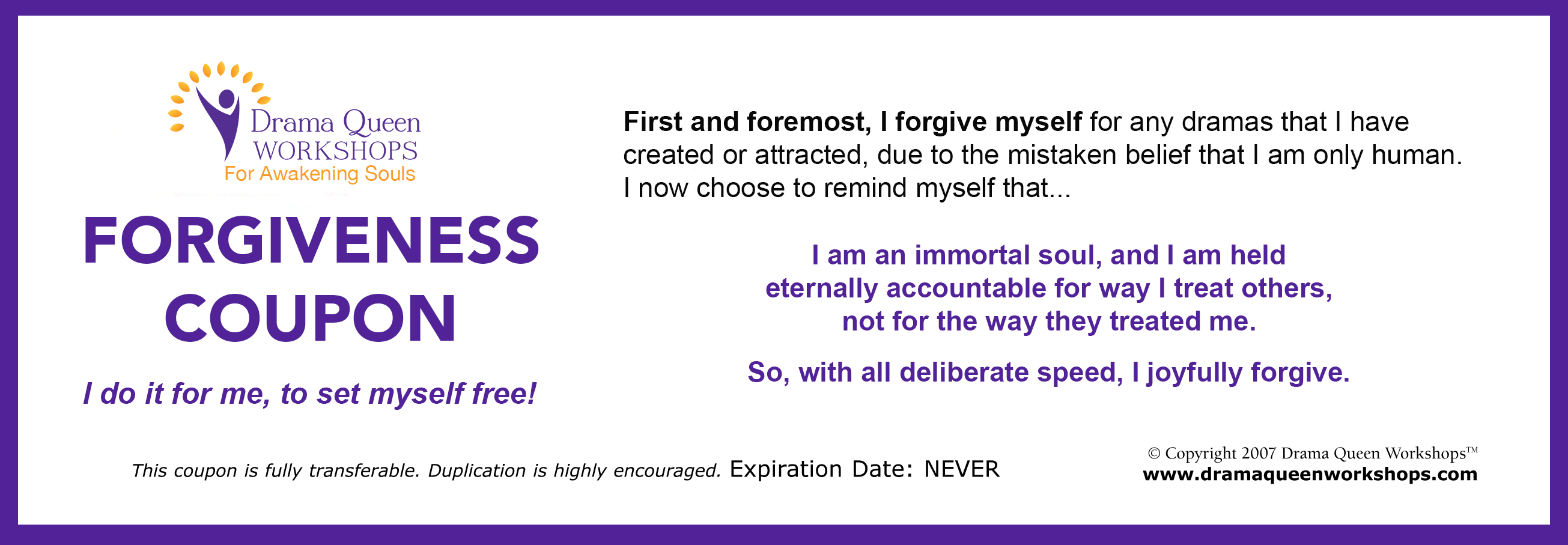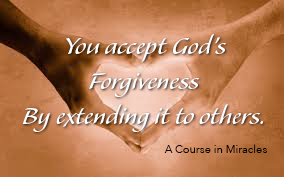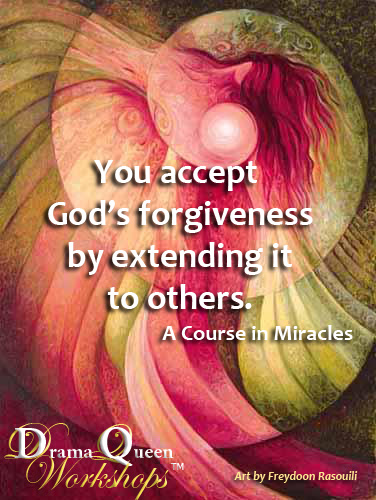 Most of us believe that we’re granting someone a favor when we forgive them. In reality, we’re doing ourselves a favor: We’re freeing ourselves from the grip of any negative energy associated with the incident.
Most of us believe that we’re granting someone a favor when we forgive them. In reality, we’re doing ourselves a favor: We’re freeing ourselves from the grip of any negative energy associated with the incident.
When we forgive others, we also are making a conscious choice to defer to what some call the Law of Reciprocity, the Law of Attraction or karma. We are trusting that in a “what-goes-around-comes-around” world, hurtful behavior will be naturally balanced at the most perfect time and in the most perfect way.
Allowing every soul to receive what we’ve given isn’t punishment or reward; it’s merely balance. It’s divine fairness.
Forgiving others also is a conscious decision to heal ourselves so that we can progress on our path instead of being stuck in someone’s stupid. Forgiving someone does not endorse or excuse their behavior. And it does not let them off the hook. They own their behavior, and they alone will be held accountable for everything they do.
It reminds me of the time I was walking out of my office and a concerned staff member called me back. I’d left my wallet on my desk. My response: “I have way too much work on my plate to add the task of monitoring someone else’s karma.”
As far as I was concerned: If someone came into my office without permission and stole my wallet, oh well. They had just signed a requisition for someone to violate their space and steal from them. It’s what happens whenever we do something to someone else that we wouldn’t want done to us. That’s why the rule is golden.
There’s no better time to be selfish than when deciding how to respond to someone’s harmful behavior. The most selfish thing we can do is to avoid creating any negative karma of our own by trying to even the score. The Divine doesn’t need our help in restoring balance. If there a role for us, something we must physically do, we will be guided. You’ll know that it’s Divine guidance if it is spoken calmly and you feel a sense of peace while hearing it and following the directions. If the words or directions cause you to feel angry or hurt, it’s not the Divine talking, it’s Ego.
Forgiveness does not heal relationships with anyone but yourself, and does not require that you remain in the friendship, marriage or other partnership, job or other organization. Once trust is lost, it takes more than forgiveness to restore it–and restoring trust is the other person’s job, not yours. But while forgiveness cannot necessarily heal a relationship, not forgiving might physically harm you.
Harboring anger and resentment linked to cancer
A study published in the November-December 2012 issue of Cancer Nursing: An International Journal for Cancer Care and cited on the US National Library of Medicine/National Institutes of Health website suggests a link between forgiveness and illness:
“The observed relations between religious characteristics and attitudes of guilt and forgiveness suggest that a careful examination of the role of religious beliefs and values is relevant in the clinical care of patients with cancer, both in the setting of early and advanced disease.”
Metaphysical lecturer and bestselling author Louise Hay, who claimed such a link in her 30-million copy bestseller, You Can Heal Your Life, focused specifically on cancer 20 years later in her book, Cancer: Discovering Your Healing Power. Hay asserted that resentment, criticism, and guilt create and maintain illness. And she presented forgiveness as the key to resolving diseases such as cancer.
 Now, how do you feel about forgiveness? Inspired you to drop everything and start forgiving everyone who’s ever “wronged” you? There are things that have happened to us that we can’t recall or that we’ve protected ourselves from by stuffing those memories in the farthest reaches of our subconscious minds. If those situations are not healed, they can resurface—sometimes violently.
Now, how do you feel about forgiveness? Inspired you to drop everything and start forgiving everyone who’s ever “wronged” you? There are things that have happened to us that we can’t recall or that we’ve protected ourselves from by stuffing those memories in the farthest reaches of our subconscious minds. If those situations are not healed, they can resurface—sometimes violently.
The situation is further complicated if you believe that you are a soul that is temporarily wearing a body. There could be thousands or millions of situations to forgive that are outside of our conscious awareness. To cover that possibility, I like to say: “I forgive myself for causing harm and I forgive everyone throughout my eternal life who has ever harmed me. I release all anger and negative energy that have chained me to those situations and souls.”
Life has dramatically taught me the transformational power of forgiveness, and I eagerly encourage others to reap the benefits of the practice (and it is a practice). Years ago, I created Forgiveness Coupons for one of my Drama Queen Workshops groups. The coupons were such a hit that I posted them on my website as a free download.
Right now, I’m in the process of a “gut rehab” of my original site, after remodeling it several times over the years. But some elements must follow me to the new domain. Among them, these precious coupons.
As I say in my workshops: “How would we experience the power of forgiveness if no one ever did anything that required it?”
I invite you to download the coupons as many times as necessary. Share them freely. Heal yourself and your loved ones—and as you practice forgiveness, be mindful not to do anything that would trigger self-forgiveness or the forgiveness of others. Balance makes no exception for you, Dear Soul.




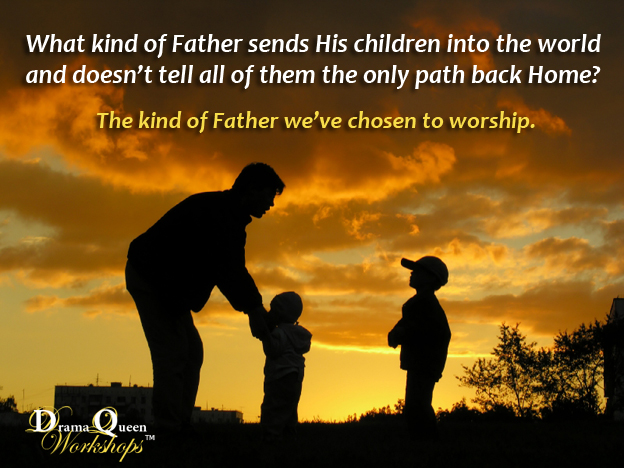

 Rarely do I want to be that one, the bag lady. But for the next few weeks, I’ll be happily living out of suitcases. The first stop on my journey is the Balcony of Life, where I will stay until Easter is good and over.
Rarely do I want to be that one, the bag lady. But for the next few weeks, I’ll be happily living out of suitcases. The first stop on my journey is the Balcony of Life, where I will stay until Easter is good and over. 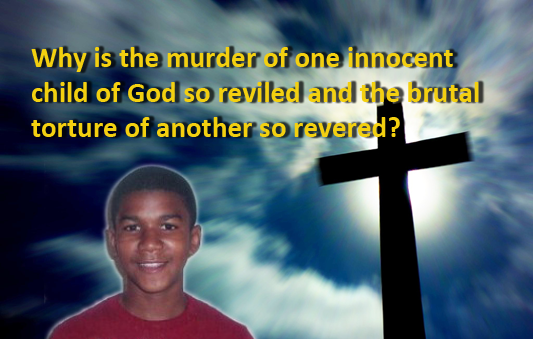

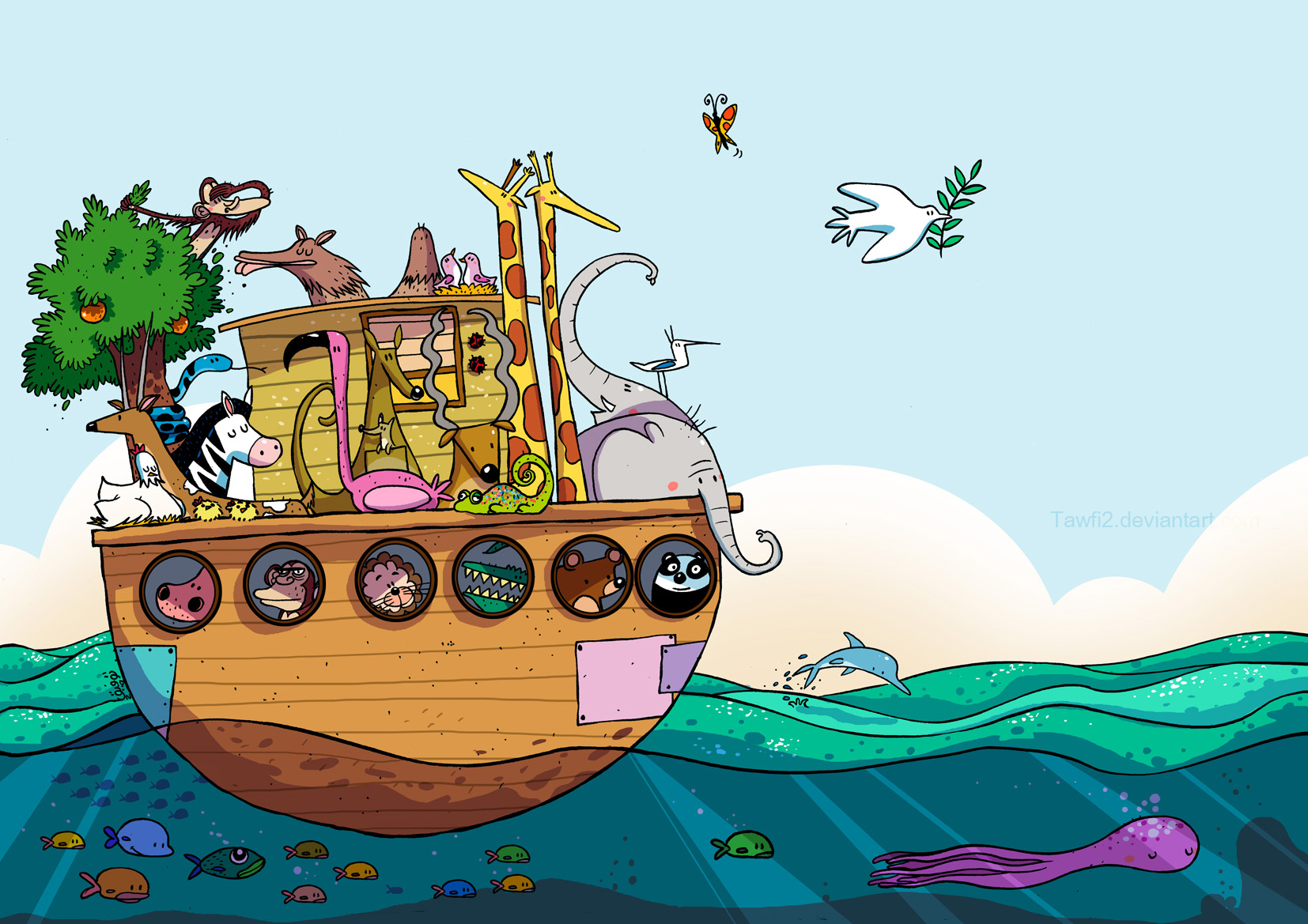
 Wrong Lessons, Well Learned
Wrong Lessons, Well Learned According to the Associated Press, the revelation was unveiled in
According to the Associated Press, the revelation was unveiled in 
